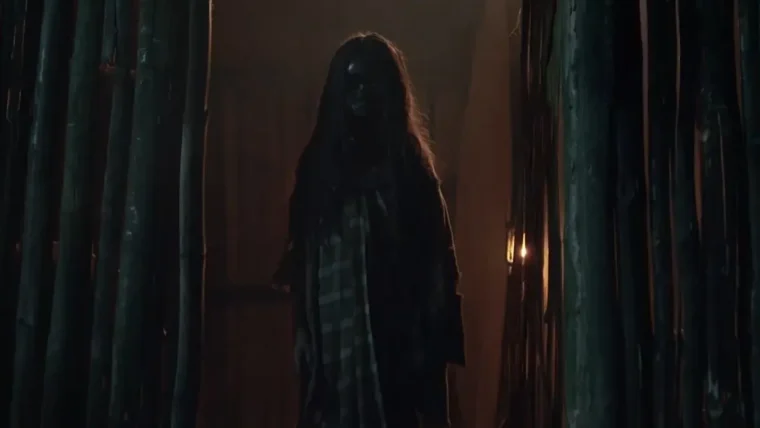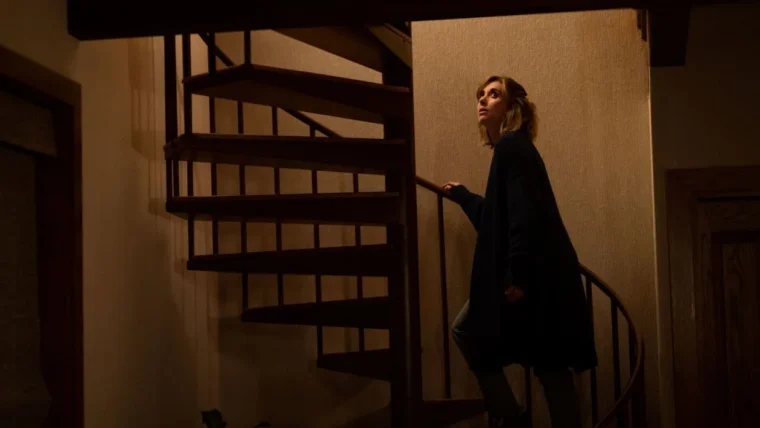From cultic crime dramas deep in the heart of the American South to the war tragedies of child soldiers in Africa, is there anything Cary Joji Fukunaga can’t do? Apparently not, seeing that the man is set to direct the latest instalment to the Bond film series. For now, however, it looks like we’ll have to settle for Fukunaga’s deliciously dystopian dark comedy miniseries Maniac. Between this and True Detective, we see the director take visuals to a whole new level with stunning cinematography and gorgeous visuals That shouldn’t be much of a surprise seeing that Fukunaga has earned a reputation for that. The question of the day is: Is there more to Maniac than just its trippy imagery and artful aesthetics? The answer, much like the reality in the show, is a lot more complicated than you think.
The miniseries follows Jonah Hill’s Owen Milgrim and Emma Stone’s Annie Landsberg who are drawn to one another after each of them enrols in an experimental drug test. Owen is an alienated and disillusioned son of wealthy business tycoon Porter Milgrim. On top of his dysfunctional family with him being forced to lie for his scummy brother at a sexual misconduct trial and his materialistic, out-of-touch father, he’s also diagnosed with schizophrenia. His inability to distinguish between what is real and illusory makes life for him a living hell. Annie is no better as she struggles to break away from the pain of losing her mother and sister. Both of them with a handful of other patients will go on a fantastical drug trip and subconscious mind-connect to confront their inner demons and heal their traumas. Each fantasy allowing them to dive deeper and deeper into their subconscious to cure the root of their mental illness. Perhaps they’ll finally find salvation through each other or maybe they’ll realize, to quote Milgrim, that “none of this is real”, not even their emotional breakthroughs.
One thing you cannot say about Maniac is that it is unambitious. Netflix really went all out in creating the Orwellian nightmare of modernity that is the world of Maniac. I don’t know whether it was meant to be intentional or not but the use of technology here is a love letter to sci-fi pop culture. From the isolation pod that Annie’s dad hides in, to the machine patients use to travel through each other’s minds bearing a very Total Recall look. There’s a nice bit of retro-future tech with experimental scientist Dr Mantleray creating a sort computer that simulates his overbearing mother’s personality. And that is precisely what makes Maniac so engaging, the way the show blends the character flaws and relatable psychology of industrial angst with the technology of its world. They all function together to accentuate the foibles of the show’s characters in entertaining and creative manners, even if they do tend to be overly explanatory by being overtly hyperbolic.
Reality aside, the show really shines when it gets into the various fantasies that are played out between Milgrim and Landsberg. My personal favourite being the one in which Annie goes in into an actual fantasyland as a half-elf and is sent on a quest to escort an elven version of sister on a quest she always fails to complete. A lot of these fantasies provide the brighter colour palette compared to the drab reality of muted tones. That’s sort of the beauty of Maniac, the way it uses its plot device to flesh out characters, stories and pains. The plot itself can feel a little bit slow at times, especially when the patients snap back to reality but ultimately these plot threads do find a meaningful resolution one way or another. The writing itself, as in the written dialogue, is a mixed bag. Maniac at times can feel a bit like a stage play turned to life with hammy lines that would benefit better in a more…theatrical environment. Most of the comic relief in here is drawn from the absurdity of seemingly melancholic situations and the fantasies themselves. Again, not all of them are hits but it does just enough to keep you trucking on.
The performances certainly aid in bolstering up the screenplay. Actress Emma Stone is no stranger to dramatic roles and here we get to see her hit a high point in her volume as a dramatic actor. Thankfully the script doesn’t require her to go through the usual cliche route of her character being stone cold defensive before having an amazing epiphany becoming a whole new person. Being able to trace the little moments of improvement she makes allows following her journey to feel all the more satisfying. Jonah Hill is near unrecognizable here, far from the boisterous boy that he once was in Superbad. He’s sombre, anxious and neurotic living under the shadow of his family. What’s impressive about their performances is how they’re able to adopt starkly different personalities in their fantasies while at the core being the same person. Beyond the Superbad dream couple, Justin Theroux is great as scientist Dr Mantleray who himself has a few mommy issues to deal with.
Maniac is a trippy, chuckle-worthy piece of modern-day melancholy. Frightful and confrontational at its fiercest and endearing and cathartic at its funniest. While the script at times does falter, it manages to pull itself across the finish line with plenty of visual flair and admirable performances. If you haven’t checked it out yet, you can head on over to Netflix today!
Hey you! Yes you, hot stuff. Like my article? Leave a comment below and let me know what you think. Also, don’t forget to share it with your buds. And if you’d like to talk movies you can hit me up here: @cinesam







